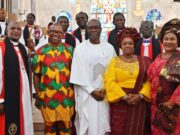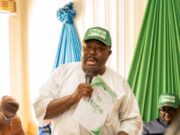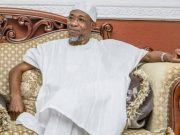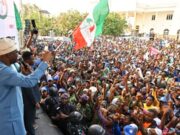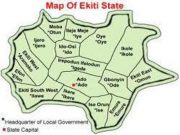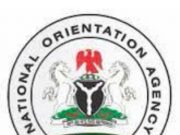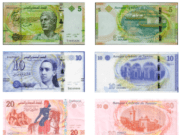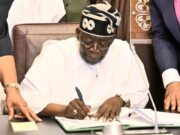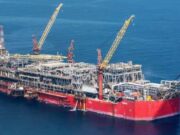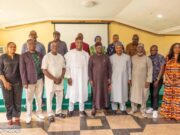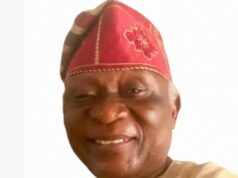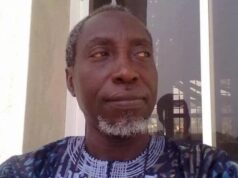Nigeria’s economy is bleeding, not from the absence of money, but from the silent, systemic outflow of capital that should be building industries, creating jobs, and stimulating innovation.
Instead, wealth is fleeing into the vaults of local banks, offshore accounts, and speculative government instruments that promise easy returns but deliver little to the real economy.
This quiet drain known as capital flight has become one of Nigeria’s most understated yet devastating economic tragedies. It reflects not only a lack of investor confidence but also the failure of the banking and financial ecosystem to function as a true engine of growth. The role of banks in any healthy economy is to mobilize deposits, lend to productive sectors, and finance businesses that create value. Yet, in Nigeria, this cycle has broken down.
The country’s major banks, flush with liquidity, increasingly prefer to invest in risk-free government securities rather than lend to manufacturers, farmers, or entrepreneurs. The ease of earning double-digit interest from government bonds has turned banks into passive rent collectors rather than drivers of development. This behavior represents a form of internal capital flight with money technically within the system but practically locked away from the economy’s productive veins.
Beyond domestic hoarding, Nigeria faces a more pernicious form of external capital flight. Each year, billions of dollars exit the country through legal and illicit channels, draining investment, depleting foreign reserves, and eroding confidence in the nation’s economic future. Government and independent estimates suggest that Nigeria loses between $17 billion and $18 billion annually through illicit financial flows (IFFs), roughly 20 percent of the $88.6 billion that Africa collectively loses each year. That amount could have built schools, hospitals, and industries capable of employing millions.
The story of capital flight from Nigeria is not merely an economic tragedy; it is a moral one, the tale of a nation betrayed by its own custodians and courted by foreign accomplices who profit from its dysfunction.
Nigeria’s political elite have long mastered the art of wealth extraction. Through inflated contracts, misappropriated public funds, and dubious foreign investments, billions leave the country yearly. Yet, for many politicians, local investment is a risk they refuse to take. Their mansions rise in Dubai, London, and New York while their home constituencies languish in neglect. From shell companies in the British Virgin Islands to luxury real estate in the UAE, Nigerian politicians have woven a global web of concealed wealth shielded by secrecy jurisdictions and weak local enforcement. The irony is stark, as those who control Nigeria’s wealth have no faith in the economy they manage. Their lack of confidence in their own governance is perhaps the strongest indictment of their rule.
The aristocracy and business elite are not blameless. Nigeria’s high society, traditional rulers, business moguls, and political patrons have continued to move funds abroad under the guise of “diversification” or “investment security.” In reality, it is the same cycle of extraction and expatriation, where profits earned from domestic monopolies or state patronage are rarely reinvested at home. Instead, they are laundered into foreign banks, luxury assets, and offshore trusts. This unrestrained financial migration deprives the nation of growth capital and erodes public confidence, reinforcing a psychological colonization with the belief that nothing of value can thrive in Nigeria.
The problem, however, is not purely internal. Foreign corporations and their local collaborators play a significant role through aggressive tax avoidance and profit repatriation schemes. By exploiting loopholes in Nigeria’s weak fiscal systems, multinationals shift profits to low-tax jurisdictions, a process known as transfer pricing, which is draining billions from the economy each year. To make matters worse, global consulting and legal firms help structure these outflows, acting as enablers of corruption while hiding behind the veil of legality.
Capital flight thrives where institutions are weak. Agencies such as the Central Bank of Nigeria (CBN), the Nigerian Financial Intelligence Unit (NFIU), and the Economic and Financial Crimes Commission (EFCC) operate under immense political pressure. Investigations into politically exposed persons are often selective, and prosecutions drag endlessly. Meanwhile, banks (both local and foreign) play the silent role of facilitators, processing questionable transactions with minimal scrutiny. The result is a perfect ecosystem for looting by powerful politicians, complicit banks, pliant regulators, and eager foreign beneficiaries.
The effects are devastating. Capital flight undermines foreign exchange stability, weakens the naira, and starves industries of investment. When billions are left unchecked, the government resorts to borrowing, increasing national debt and mortgaging the country’s future. Nigeria’s public debt now stands at N149.39 trillion, with debt servicing consuming over 70 percent of government revenue. Inflation remains stubbornly high at 20.12 percent as of August 2025, while food inflation stands at 21.87 percent. Unemployment, officially at 5 percent, is far worse in reality, with underemployment and informal work masking widespread joblessness.
One overlooked driver of this crisis is Nigeria’s weak respect for property rights, which is the very foundation of investor confidence. In September 2025, the Lagos State government demolished over 19 buildings in the Trade Fair Complex, Ojo, citing permit violations. But beyond regulatory enforcement, the event exposed a deeper issue: inconsistent governance, opaque processes, and disregard for ownership that fuels distrust and drives capital offshore. When investors are uncertain that their assets are safe from arbitrary government action, they simply take their money elsewhere.
Multiple taxation, inconsistent policies, and weak monitoring of illicit flows further complicate the picture. Businesses face overlapping levies from different tiers of government, pushing many to conceal income or move operations abroad. Civil society estimates that over $18 billion is lost annually through illicit flows. This is a drain that robs Nigeria of the fiscal capacity to fund schools, hospitals, and roads.
Ultimately, the story of capital flight is one of moral and institutional decay. It reveals a political class that preaches patriotism while stashing wealth abroad, a banking system that serves itself rather than the economy, and a foreign financial order that profits from Nigeria’s dysfunction.
Reversing this pattern requires a national reorientation, one that goes beyond slogans to enforce accountability and rebuild trust. Nigeria must strengthen asset recovery frameworks, enforce beneficial ownership registries, and enhance cooperation with countries that host stolen wealth. Western nations, too, must shut down the safe havens that shelter looted funds; they cannot condemn corruption abroad while their financial systems profit from it.
More importantly, Nigeria’s leaders must recognize a simple truth that no nation develops by exporting its capital and importing its luxuries. Development is sustained by faith, the faith of a people who believe enough in their land to invest in it.
Capital flight is not merely an economic statistic; it is the reflection of a broken covenant between Nigeria and its leaders. The wealth that should build the nation has become the currency of betrayal. Until the ruling class and their foreign accomplices are held accountable, Nigeria will remain a country of immense potential shackled by the greed of its own custodians.
- Blaise Udunze, a journalist and PR professional writes from Lagos and he can be reached via: blaise.udunze@gmail.com





















